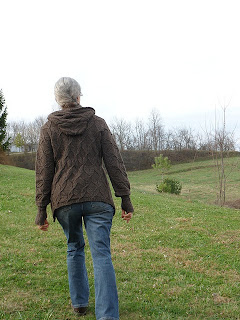 |
| Insert snackies here. |
Hey, you guys! It is Me! Bertie SueBell! Guess what, you guys! It has been a WHOLE YEAR since I got my Forever Home! My MamaLady said I could use the clicky things to tell you all what I was thinking about, and what I am thinking about is
snackies all my names. Most people only get one name, but I'm a special kind of person, so I've had a bunch. I used to have a name that nobody knows, and I'm not telling because it's not very important anymore. When I got lost and got sent to dog jail, things were going pretty bad. The HumanPeople at the jail weren't mean to me or anything, but I didn't like them very much, and they didn't have the resources to help a pregnant, scared, sick DogPerson like me. So some bad stuff was about to go down,* but then Mama Janet from
Pals Animal Rescue got me sprung from the slammer! Mama Janet said I was beautiful (which is true) and she thought I would like HumanPeople better when I wasn't in jail anymore (which was also true), so she took me to her house and she said my name was Cricket. And sure enough, I wasn't scared anymore, and pretty soon I wasn't pregnant anymore either! Mama Janet took good care of me while I took good care of my puppy, and then when I got him all finished up, I moved to Mama Jean's house. Mama Jean called me Cricket
Sue, and I liked that a lot, mainly because Mama Jean loved me a bunch, just like I was one of her own dogs.
 |
| I heard a rumor that some cats live here, too, but I haven't seen any. |
|
But then I came to live with my Forever MamaLady, and she says my name is Bertie SueBell. She says I am named after Albert Einstein because of my crazy furs, but I think it's because I have all the smartnesses and lots of relativities like my
Brother Brewster and my Aunt Maddie, who are Pals Dogs, too, and my Cousin Miles, who is not in our Pals Club, but is a good guy anyway. So I think Bertie SueBell is my best name so far, and I think I will keep it, even though sometimes the MamaLady yells, "
Alberta!" in that screechy tone that means I'm supposed to quit eating cat poop in the yard. I mean, really, what does she think it's there for?
 |
| Here are me and Brewie not barking. Much. |
But most of the time my name means good things. After all, I have important Bertie SueBell jobs to do now that no one else could do as well as me. Mainly I have to take good care of Brewie and the MamaLady. Brewie is a
DINOS, which really just means he's a big ol' scaredy-dog, and it's my job to show him that it's okay to be brave and meet new people. Brewie watches what I do, so when I decide not to bark at someone, he knows he doesn't have to bark, either. When we go visiting somewhere, I always walk in first to show Brewie there's nothing to be afraid of. And when we go on walks together, I show him how to be brave when we walk past fences with dogs yelling at us, and we never yell back. Almost never. Mostly.
 |
| You can play Snuzzles in the grass, too. |
And would you believe I even had to teach that Brewie how to play chase? When I first moved in, I kept running away and he would just sit there and stare at me. What a dork. But he figured it out eventually, and now we take turns chasing each other around the house. The MamaLady says it's a good thing the floors are already all scratched up, but I heard her tell someone that she'd rather have happy dogs and scratched-up floors than fancy floors and no dogs, so I run a lot to help her out. And Brewie even taught
me something, even though I have much more smartnesses than him. He likes to play a game called Snuzzles, which is just rolling around in blankets and stuff, and I don't really get it, but Brewie likes it, so I roll around with him so he won't feel dumb for playing such a silly game all by himself, kind of like when you have to play Uno with your little brother, even though you'd rather be playing poker.
 |
| My most very important job. |
I also take good care of the MamaLady by hanging out with her all the time in case she needs me to sit on her lap so she can give me good pets. It's a big responsibility, but I am up for the challenge. Sometimes she doesn't even know she needs me on her lap and I have to noodge my way on, but all my hard work is worth it. MamaLady says she feels better
when she pets me, and I can see why because my furs are beautiful and
soft now. She also says I help her by making her laugh all the time, even though I am very serious about all my important jobs. MamaLady says I should be the star of my own cartoon show, which I think is probably a very serious, important kind of show on the noisy box about how to be good at important DogPerson-type jobs.
 |
| I have all the beautifulnesses, too. |
So I think that of all my names, I like the one I have now the most and I will keep it. MamaLady says that of all the Bertie SueBells in the whole entire world, I am the
Very Best, and since I have all the smartnesses, I know she is right about that.
*A note from the MamaLady: Sometimes people are indignant or angry that the staff at the Wichita Animal Shelter was going to euthanize a beautiful, friendly dog like Bertie Sue. I think that's kind of silly.
The staff at the Animal Shelter and the Kansas Humane Society work
so hard to save as many animals as they can, and they have extremely limited resources. They simply cannot save every animal who crosses their threshold, and I have no doubt that Bertie Sue appeared to them to be aggressive. (Even in the best of times, Bert doesn't like to be bothered when she's resting and isn't shy about telling HumanPeople to Back Off.) It would've been too much to ask the WAS and KHS to invest the time and money into an aggressive mother dog who would have to nurse for six weeks and who might never be adoptable. So instead of being angry, I choose to be grateful that the WAS was able to get Bert off the street in the first place, and that here in Wichita we have an organization like Pals Animal Rescue that can step in and rescue at least a few of the dogs who can't do well in a shelter environment but can be rehabilitated in a home. Everyone worked together to get my Bertie SueBell to me and Brewster, and we're so glad they did. We need her!







